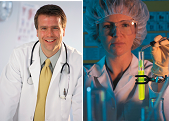 January 6, 2020 (San Diego's East County) -- Our Health and Science Highlights provide cutting edge news that could impact your health and our future.
January 6, 2020 (San Diego's East County) -- Our Health and Science Highlights provide cutting edge news that could impact your health and our future.
HEALTH
- Health officials warn of measles exposure at five U.S. airports (ABC)
- Number of children swallowing dangerous magnets surges as industry largely polices itself (Washington Post)
- Micro Implants Could Restore Standing and Walking (Science News Daily)
- In a first, an Ebola vaccine wins approval from the FDA (Science News)
SCIENCE AND TECH
- A decade on earth, captured from space (Reuters)
- New lithium-sulfur battery could charge your phone for five days, researchers say (CNN)
For excerpts and links to full stories, click “read more” and scroll down.
HEALTH
Health officials warn of measles exposure at five U.S. airports (ABC)
"A small number of cases are capable of quickly producing epidemics."
Number of children swallowing dangerous magnets surges as industry largely polices itself (Washington Post)
The number of children ingesting rare-earth magnets — powerful tiny balls that are a popular desk toy and can shred a child’s intestines — has skyrocketed in the three years since courts blocked the efforts of federal regulators to force changes to the industry, which largely holds the power to regulate itself.
Micro Implants Could Restore Standing and Walking (Science News Daily)
Researchers are focused on restoring lower-body function after severe spinal injuries using a tiny spinal implant. n new research, the team showcases a map to identify which parts of the spinal cord trigger the hip, knees, ankles and toes, and the areas that put movements together.
In a first, an Ebola vaccine wins approval from the FDA (Science News)
The drug is crucial to efforts to curb an ongoing outbreak of the deadly disease in Congo
SCIENCE AND TECH
A decade on earth, captured from space (Reuters)
The biggest news events of the past decade have been chronicled from space. The last 10 years have seen a boom in the use of satellite imagery for reporting, led by a growth in commercial satellites that has slashed the cost of such images, and advances in technology that have made high-resolution images from many parts of the world accessible, almost instantly, even on a phone.
New lithium-sulfur battery could charge your phone for five days, researchers say (CNN)
Australian researchers claim they have developed a battery that can keep a smartphone charged for five days or power an electric car for 1,000 kilometers (over 600 miles). If the technology comes to be used widely, it would represent a significant breakthrough in the hunt for greener, more efficient energy. The team from Monash University in Melbourne says the lithium-sulfur battery it has created is the "world's most efficient," and can outperform traditional batteries by four times. The researchers said they are "on the brink" of commercializing the innovation, and touted its benefits for the fight against climate change.









Recent comments